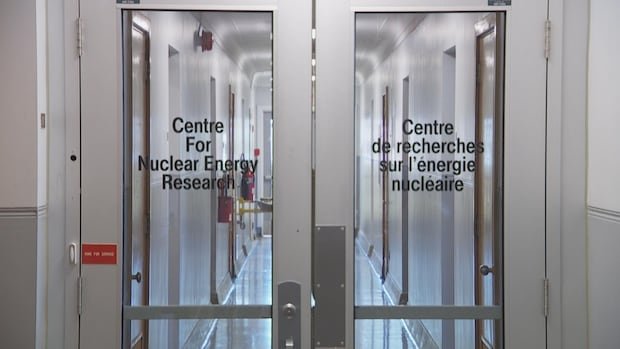A professor at the University of New Brunswick believes that nuclear energy will be essential to meet the province’s increasing energy demands in the future. Establishing a full nuclear engineering program at the university could help facilitate this transition, according to William Cook, who heads the Centre for Nuclear Energy Research at UNB.
The university’s newly inaugurated Advanced Nuclear Reactors Laboratory, operational for a month now after eight years in development on the Fredericton campus, is equipped with tools utilized by graduate students and researchers to study material interactions in environments resembling those found in nuclear reactors.
Cook and his team oversee research focused on understanding degradation mechanisms, particularly corrosion, in reactors. The objective is to identify factors leading to system failures over time and implement preventive measures. With a growing interest in small modular reactors in recent years, the laboratory aims to support advanced reactor systems, including Generation IV technology.
Currently, UNB offers around eight to ten nuclear engineering courses as elective options within chemical or mechanical engineering degrees. Cook advocates for the establishment of a comprehensive nuclear engineering program at the university to address the anticipated workforce demands in the sector.
New Brunswick, alongside Ontario, is one of the two Canadian provinces with nuclear reactors. The average age of a nuclear worker in Canada is 55, highlighting the need for a new generation of skilled workers. Cook emphasized the university’s strong ties with industry partners, such as the Point Lepreau Nuclear Generating Station, underscoring the opportunity to expand academic offerings.
The provincial government has displayed significant interest in nuclear projects, including the possibility of a second power plant at Point Lepreau. Additionally, investments have been made in companies aiming to construct small modular reactors by 2030, though challenges may delay this timeline.
While nuclear energy expansion is gaining traction, there are critics, such as the Green Party leader, David Coon, who questions the province’s nuclear ambitions. Coon advocates for universities to pursue diverse research areas independently of industry influence. However, Cook defended the university’s collaborations with industry, highlighting the expertise that professors bring to the table for governmental and industrial consultations.
Addressing concerns about spent nuclear fuel storage, Cook noted that advanced nuclear reactors, including Generation IV systems, could potentially reduce the storage timeline by utilizing energy from long-lived products. This approach could optimize energy utilization from spent fuel and mitigate storage challenges in the long term.
In response to the evolving energy landscape, stakeholders like the Atlantic Centre for Energy support the idea of a comprehensive nuclear engineering program at UNB, emphasizing its potential to influence fields beyond energy production, such as cybersecurity and green manufacturing.

